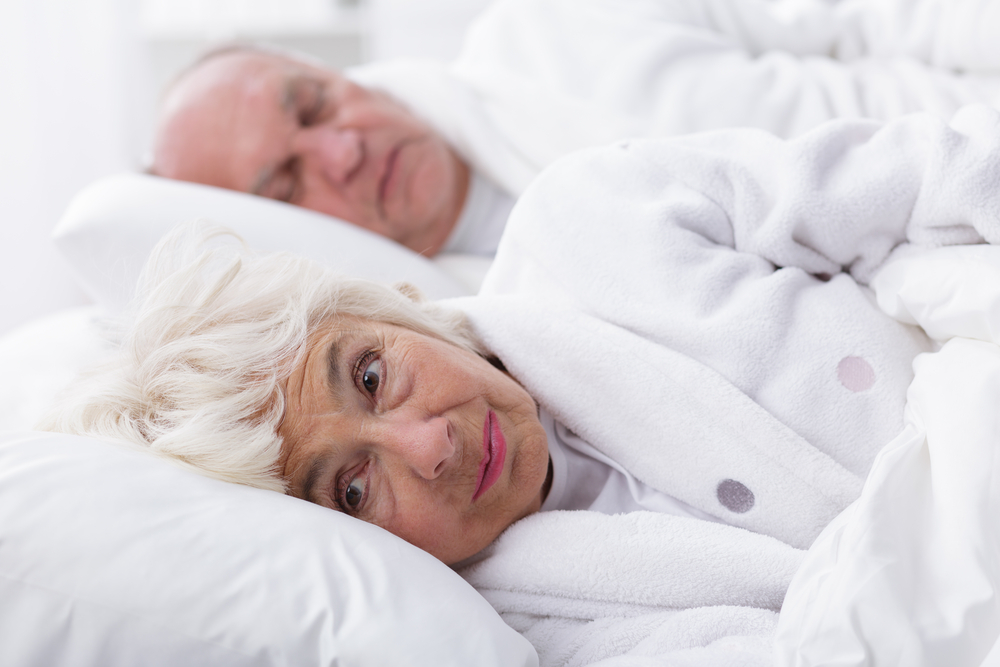Getting sufficient sleep every night becomes more difficult as we age. At the same time, coupled with the aging process is the tendency for older adults to experience memory lapses over time, or worse – more serious conditions of memory loss, and possibly even dementia.
Given these known conditions – in addition to the body of work demonstrating the refreshing, restorative benefits of sleep – a question that recently emerged in the scientific community is: If we could help older adults sleep better, would that help improve and protect their memory?
Since study of elderly in this area has been lacking, researchers at Northwestern University sought an answer. They employed an acoustical tool called "pink noise," which, as their theory posits, is a more-soothing compilation of sounds of the same frequency. That's in contrast to "white noise," which consists of a wider range of notes and sounds. And the results of their small, initial study on the subject showed promise.
The study, "Acoustic Enhancement of Sleep Slow Oscillations and Concomitant Memory Improvement in Older Adults," published recently in the journal Frontiers in Human Neuroscience, featured 13 "cognitively healthy older adults [mean age 75.2 years (range 60–84)," 10 of whom were women.
 "Manipulation of SWS provides a powerful tool both to investigate causal relationships between sleep and memory, and to improve memory consolidation," the authors wrote in their paper, referring to Slow Wave Sleep, or deep, restful sleep. "The goal of the present study was to determine whether acoustic stimulation in sleep can ... improve memory in older adults."
"Manipulation of SWS provides a powerful tool both to investigate causal relationships between sleep and memory, and to improve memory consolidation," the authors wrote in their paper, referring to Slow Wave Sleep, or deep, restful sleep. "The goal of the present study was to determine whether acoustic stimulation in sleep can ... improve memory in older adults."
All were monitored for two nights of sleep, and during one (which they were unaware) the subjects were subjected to pink noise. Their brain waves were monitored, and prior to each sleep session each adult was given a word-pairing test. For those following pink-noise sleep sessions, results of the word-recalling exercise were on average three times better as compared to the control sleep night.
"Forgetfulness can be a normal part of aging," states the CDC. "Some people may notice that it takes longer to learn new things, they don't remember information as well as they did, or they lose things like their glasses. These usually are signs of mild forgetfulness, not a serious memory problem." That's where, these researchers hope, the connection between sleep and cognitive function can be better understood to keep older adults from experiencing greater memory loss.
At the core of the research is Slow Wave Sleep, which can power cognitive function, while the lack of it produces drowsiness and impairs one's ability to think clearly.
Past studies have shown that, "[s]leep in older adults is characterized by frequent awakenings and a prominent reduction in REM, SWS, and SWA," according to the study's authors, referring also to Rapid Eye Movement and Slow Wave Activity, which they define as "a quantitative physiologic measure of SWS."
Certainly, one limitation of the study is the small sample size, so while this is promising it's difficult to get overly excited with these results. The research team acknowledges this, with an eye on follow-up work.
"These results pose the need for more investigation into the mechanisms by which memory processing occurs during sleep," the authors wrote, who added that "future studies should focus on repeated use, potentially over the course of several weeks, as a potentially useful approach to improve both sleep and memory for high-risk populations."




